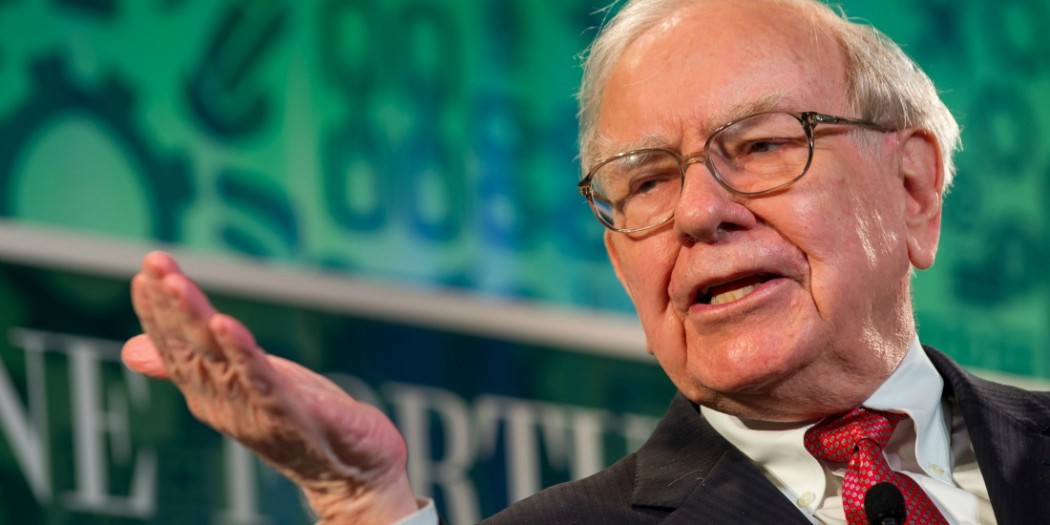By David Chavern
President and CEO of Newspaper Association of America
If you want to know who still believes in a future for news media, just turn to some of our most respected businessmen: Warren Buffett. Jeff Bezos. John Henry. Glen Taylor.
All of them have made significant investments in newspapers, despite the media pundits that have been claiming the death of the newspaper industry for years. Just a few weeks ago, Buffett acquired his 32nd paper, the Fredericksburg Free Lance-Star, demonstrating that print journalism remains relevant even as our digital audience – on mobile, social media, virtual reality and a variety of other platforms – continues to grow rapidly.

It can be easy to overestimate the challenges and underestimate the value of any organization. But when an investor as successful as Warren Buffett continues to view newspaper media as worthwhile, profitable investments, it’s time to take a second look.
In reality, the demand for original, relevant reporting has only grown. Readers are hungry to understand their world, from the city council to foreign policy. Communities still want to be informed and connected. The format of the news will continue to evolve, but the need for journalism remains – and this need is uniquely met by newspaper organizations.
Who else has the resources or dedication to fund reporters to cover key beats, showing up at the city hall, Capitol Hill or school board meetings day after day? To drill down into the messy details of an investigation? To fact-check claims and piece together eyewitness reports, providing context and analysis? There are certainly wonderful digital-only news organizations that hire reporters and devote significant time and energy to journalism, but the vast majority of these stories are produced by newspaper companies.
Now, you may or may not open a copy of a print paper every day to get that news. But maybe you open an app, or the links shared on Twitter, or check Google News. All of these successful platforms are aggregators, collecting and curating the original reporting produced by news organizations.
Google, Apple and Snapchat don’t have reporters on salary, but they do have partnerships with news media that enable them to provide this content. As a result, the news audience continues to grow.
In many ways, this reminds me of Hollywood. In the first half of the 1900s, we turned exclusively to movies for video entertainment. To become a star, you had to first make it to Los Angeles and land a major role on the silver screen. Then the advent of television created a new, personalized way to consume content and more opportunities for actors to get noticed. They no longer had to rely exclusively on movies to make it.
The model has changed again just in the last 10 years. We have Netflix, Hulu, and self-made stars on YouTube with an even broader fan base than some of Hollywood’s A-list celebrities. Video consumption is even more targeted and personal. And while the format and delivery has varied widely, the demand for such entertainment continues to grow – as evidenced by EMarketer’s estimate that Americans spend 5.5 hours consuming video each day on phones, mobile and television.
Similarly, we find that the audience for this in-depth, trusted and local news is soaring on digital platforms. According to comScore research, 179 million adults engaged with digital newspaper media in August 2015. That’s a 10 percent increase year over year, and double the growth rate for the Internet overall.
This is why I – and so many other business leaders – remain confident about the future of the news industry: because the need and demand remains high. There is no denying that the last several years have been both challenging and transformative, and the industry has had to make some tough choices to evolve with the culture. But we are evolving, just as the growing audience numbers suggest.
I believe this is what Buffett, Bezos, Henry and Taylor see in the future for news. While they value the public service journalism of local news organizations, they are also smart investors. They know how to identify assets that will turn a profit.
In a 2013 letter to shareholders, Buffett announced that his company would continue acquiring newspapers “as long as the economics made sense.” His recent purchase is just one more proof point that the economics do, indeed, make sense.
 Nevada Press Association The best in Nevada journalism since 1924
Nevada Press Association The best in Nevada journalism since 1924
